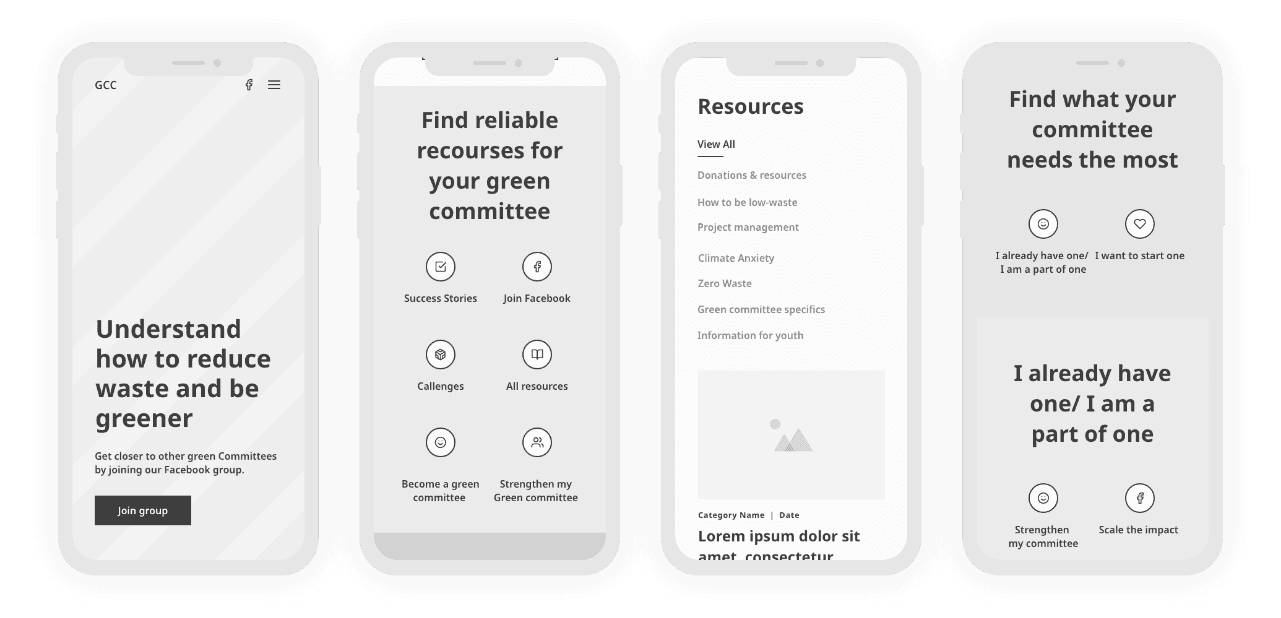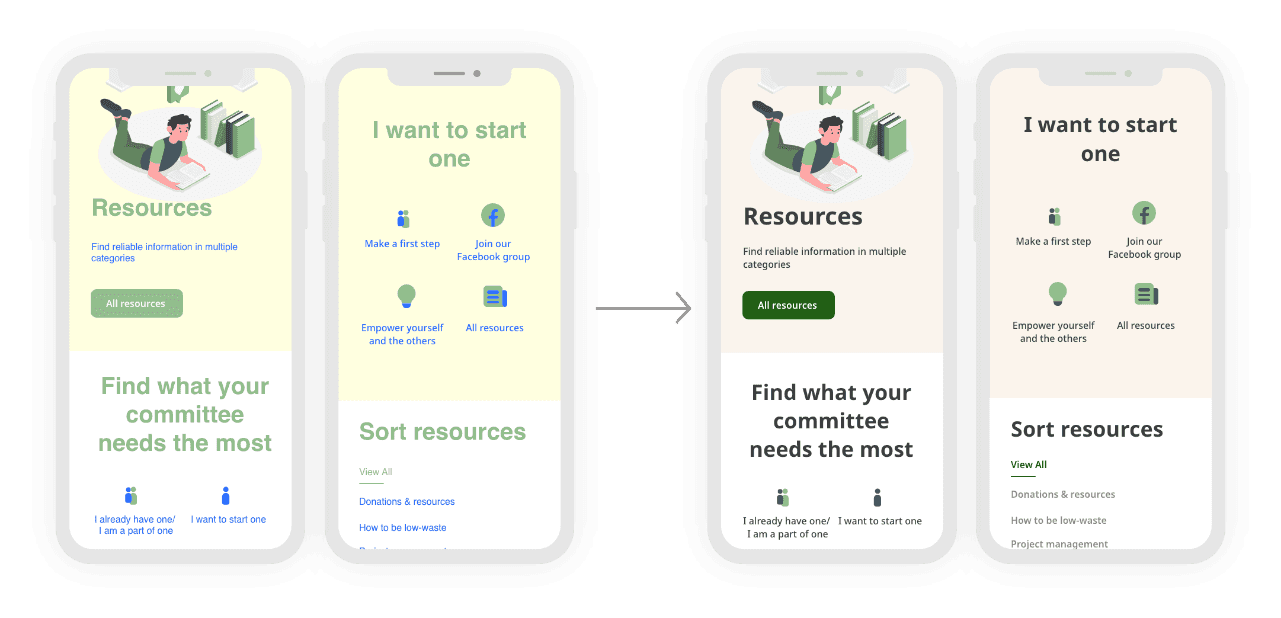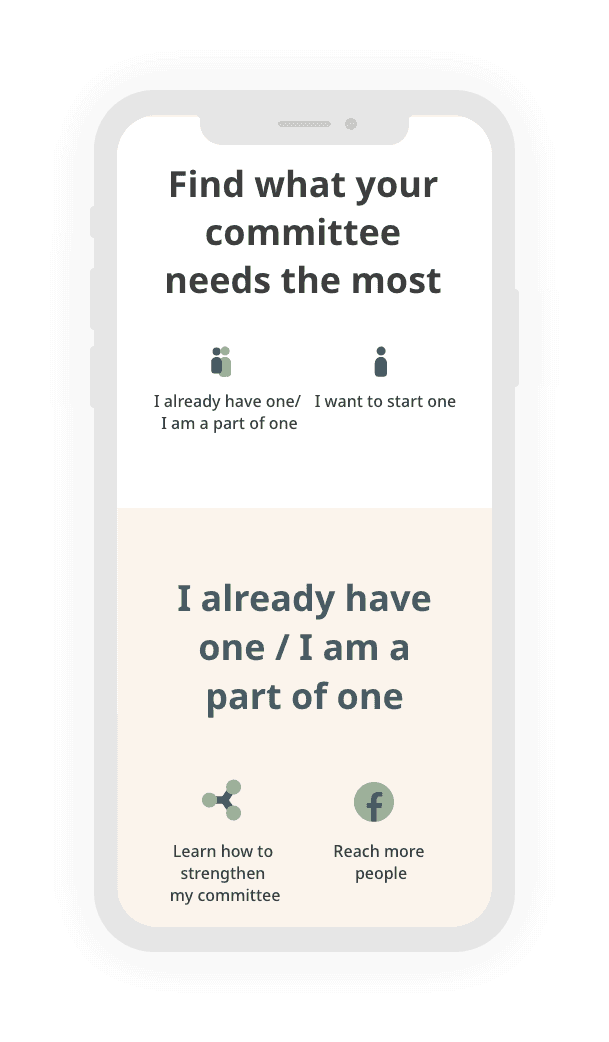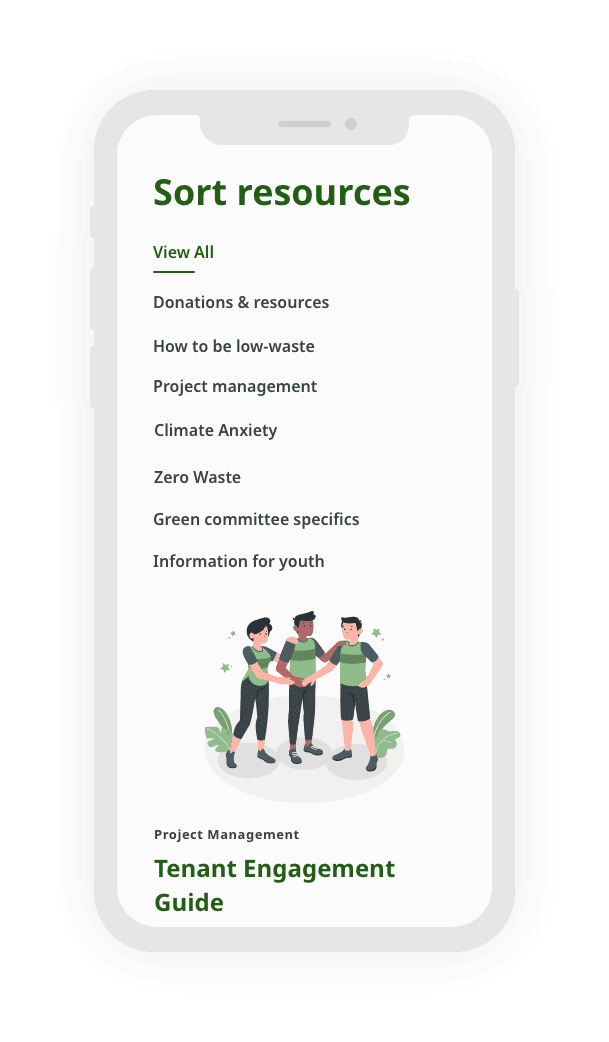Designer "hats"
Researcher
Assisted the team with qualitative and quantitative research, feedback clustering.
UX/UI designer
Reimagined the brand by following accessibility standards. Created a new visual aesthetic and information hierarchy to be maintained by volunteers in the future.
What is a green committee?
A Green Committee is a volunteer organization created for individuals living in multi-residential buildings to come together and collectively improve their neighborhoods, reduce waste, and promote sustainability.
Problem statement
How might we help people living in multi-residential buildings during pandemic reduce individual household waste and encourage more participation in volunteer groups??
Collecting information from the user interviews
Our user interviews revealed several key insights:
Lack of a single communication line
Because many people are coming from different generations, they all are using various messengers and platforms for communication. User interviews have shown that if a person would not know how to reach out they wold be reluctant to look up how.
Difficulty to find resources
Many interview participants pointed out that they would still want to try and manage their household waste, however, their main point of resources were people. Once they stopped seeing people due to covid-19, they found it daunting to look for multiple resources on the web, since recycling and waste practices in Toronto are not uniform.
Decline is household waste management
With reduced exposure to better practices and social pressures during the pandemic, individuals were less motivated to manage their household waste.
Landing on personas
Two personas emerged from our research:
James, green committee lead
“It has been difficult to have new people join. Because of Covid-19 I find It hard to talk to other members from different groups. People used to do great things together, now we stay home.”
Pain points
Psychical isolation, lack of communication.
Goal
Get more people involved, resume activities.
Sophia, new to green committees
“It is difficult to find new information about how to become one (green committee), how to join one, where to find people.”
Pain points
Lack of accessible resources, lack of self-activism.
Goal
Get involved into the movements, meet new people
Project goals
Our project goals revolved around four core areas:
Clear information architecture
Ensuring that text was easy to read and that articles followed a consistent structure.
Easy navigation
Structuring resources for easy access and consistent website architecture.
Inclusive web design
Implementing responsive design and accessible color schemes.
Information architechture
We tackled the challenge of organizing a large amount of information into a simple and navigable website. The resulting architecture included sections for success stories, resources, involvement in existing committees, and information for those wanting to start a committee.
Success storiesResourcesI am a part of an existing committeeProject ManagementPandemic & Quick ResourcesZero waste livingCommunityDonations & ResourcesClimate AnxietyIndigenous ToolkitFor KidsI want to start a committeeChallengesJoin FacebookHome
Information architecture flowchart.
From wireframes to website
Iterating through various design stages, we developed a design that allowed users to sort information for easy access. The team ultimately chose to use WIX as a website builder, which did impose some design limitations.


Wireframes, the first design stage.
Making colours accessible
In a bid to make the design accessible, I proposed a slightly altered color palette while maintaining the brand's identity.

Before and after adjusted colours for better visual accessibility.
Handing off the website to the team
The website was handed over with instructions on how to update content, design for mobile and desktop, and reorganize the webpage. The goal was to ensure that the team could maintain the website easily in the future.


Helping
others
Helping different people find relevant information
We designed small sections to guide individuals with different backgrounds toward the most relevant information.

Resourceful library of links in one place
The resource library offered a wealth of information, allowing individuals seeking environmental and waste management resources to access a wide variety of articles with no effort.

Inspiring challenges to power your community
As more people joined the Facebook group, we posted challenges and success stories publicly to engage a broader audience.
How does it look now?
The website was published in February 2021.
Lessons learned
Syncing with the team in a short period of time
Throughout this journey, I gained valuable insights into the importance of syncing with the team quickly, setting clear expectations, and understanding the user's needs.
Importance of learning about the user
This experience reinforced the significance of immersing oneself in the user's world to design a meaningful solution.
Read another case study



